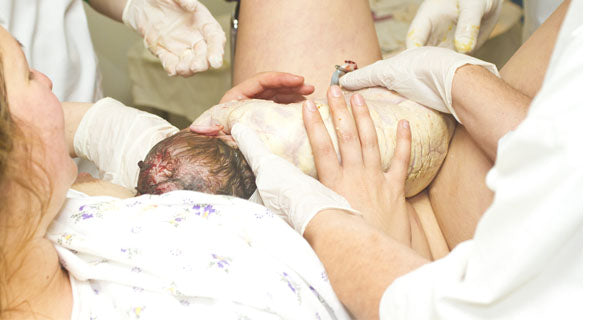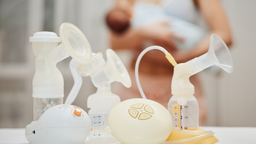Unless you've encapsulated your placenta, you probably haven't given it too much thought since your birth. But did you know that your placenta plays a key role in the development of your milk supply?
HOW CAN YOUR PLACENTA AFFECT YOUR BREASTFEEDING EXPERIENCE?
Retained placental fragments.
The delivery of your placenta triggers a key event in breastfeeding. Your placenta makes lots of progesterone during pregnancy and this hormone suppresses the action of prolactin, a key milk making hormone. Once the placenta is delivered, your progesterone level drops, allowing prolactin to go to work.
But when that separation is incomplete (leaving fragments of the placenta intact in the uterus), progesterone levels remain too high and prolactin remains suppressed. This can happen for a variety of reasons, but is more likely in the case of placenta accreta, a condition in which the placenta grows into the uterine wall. Note: If you are concerned that you may have retained placental fragments, see your health care provider immediately.
Blood loss related to delivery of the placenta.
When a mother experiences a hemorrhage during or after a birth (which can be caused by placenta accreta, placenta previa, placental abruption, and retained placenta, among other factors) her blood pressure can drop so low that it fails to circulate to her pituitary gland. This can cause some or all of the cells in her pituitary to stop functioning normally. If the blood loss is severe enough, it can cause Sheehan's Syndrome, a permanent damaging of the function of the pituitary gland.
Your pituitary gland secretes necessary milk making hormones, and when hormone production is affected, milk production can be as well. For this reason, some experts recommend monitoring women who have suffered postpartum hemorrhage for milk production problems. Blood loss can also create anemia, which is another risk factor for low milk production.
Placenta-produced hormone and breast growth during pregnancy.
As Lisa Marasco writes, there is an intriguing connection between a hormone produced only by the placenta, and breast growth during pregnancy. “Research has shown,” she notes, “that the changes in breast size (volume) that women experience during pregnancy are most closely related to the concentration of human placental lactogen, which is produced only by the placenta and therefore only during pregnancy.”
The absence of significant breast growth in pregnancy is in turn associated with breast hypoplasia, which is the cause of some mother's milk supply problems. What does this mean? Are these independent or interrelated factors? Is low human placental lactogen a cause or a symptom of another issue that also causes breast hypoplasia and low milk supply? It's important to note that hormonal issues are tremendously complex and that no causal relationship has been established.



